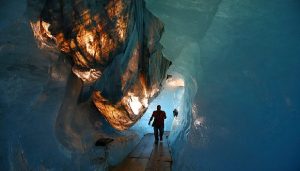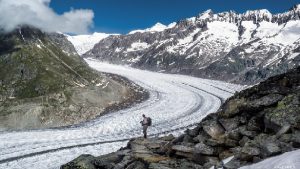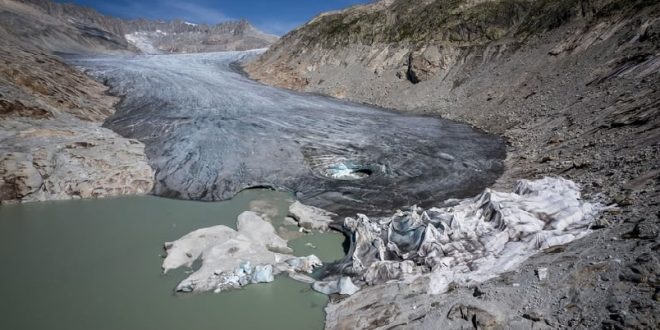29-09-2023
BERN: Switzerland has witnessed a staggering loss of 10% of its glaciers within a span of just two years due to a combination of factors, including low snowfall and soaring temperatures, causing unprecedented melting.
 In 2023 alone, Swiss glaciers lost 4% of their total volume, following the record-breaking 6% loss in 2022. To provide context, the ice loss over these two years matches the amount lost during the three decades from 1960 to 1990.
In 2023 alone, Swiss glaciers lost 4% of their total volume, following the record-breaking 6% loss in 2022. To provide context, the ice loss over these two years matches the amount lost during the three decades from 1960 to 1990.
Matthias Huss, head of the Swiss Glacier Monitoring Network (GLAMOS), described these losses as “mind-blowing” and beyond anything experienced previously. He attributed these extreme changes to climate change, emphasizing that such rapid acceleration would have been impossible without it.
The consequences of this rapid glacier retreat are profound. Glacier tongues have collapsed, and some smaller glaciers have disappeared entirely. One example is the St. Annafirn glacier in central Switzerland, which has shrunk to the point where monitoring efforts have ceased.
Even at high altitudes, where ice loss is less common, several meters of ice have disappeared. This unusual phenomenon was observed in southern Valais and the Engadin Valley at altitudes exceeding 3,200 meters (10,500 feet).
 These losses have come after a winter with minimal snowfall, followed by a summer of exceptionally high temperatures. Unusually warm and dry conditions in June led to earlier snowmelt. High temperatures persisted into September, causing rapid melting of summer snowfalls.
These losses have come after a winter with minimal snowfall, followed by a summer of exceptionally high temperatures. Unusually warm and dry conditions in June led to earlier snowmelt. High temperatures persisted into September, causing rapid melting of summer snowfalls.
While the glacier melt has temporarily helped alleviate drought conditions and fill hydropower reservoirs, its long-term implications are stark. It is reshaping the high-alpine landscape and creating unstable rock conditions, increasing the risk of dangerous rockslides.
Additionally, the loss of glaciers as a water source threatens to exacerbate water scarcity during heatwaves in the near future. Glaciers play a crucial role in providing water runoff when needed, and their rapid decline poses a significant challenge to water availability.
Swiss voters recently passed a law aimed at reducing planet-heating pollution, driven in part by concerns about preserving glaciers. However, the pace of climate change means that time is running out. Recent research indicates that even if ambitious climate targets are met, up to half of the world’s glaciers could disappear by the end of the century. The rapid loss of Switzerland’s glaciers serves as a stark reminder of the urgency to address climate change and its far-reaching consequences. (Int’l Monitoring Desk)
 Pressmediaofindia
Pressmediaofindia




